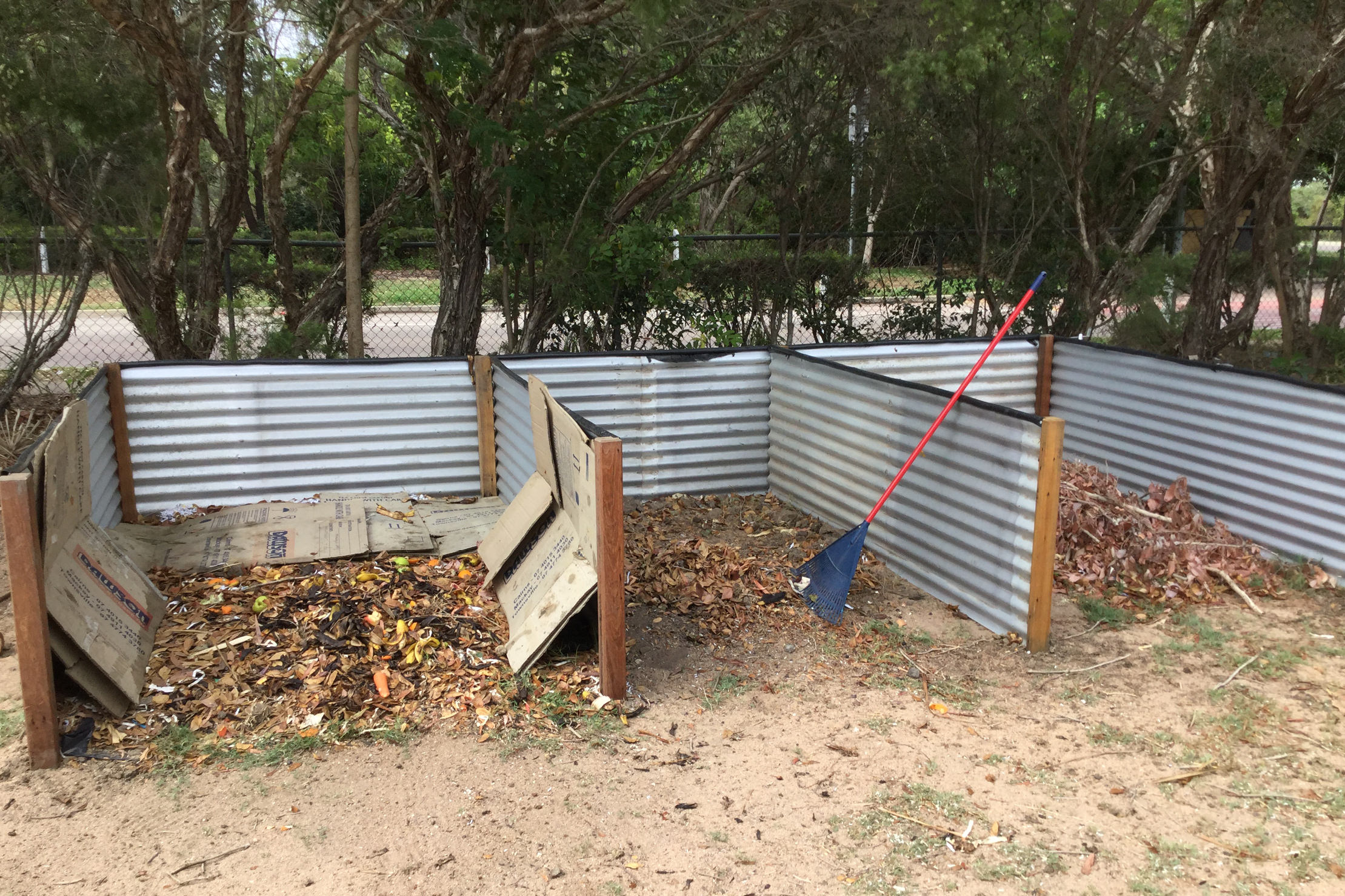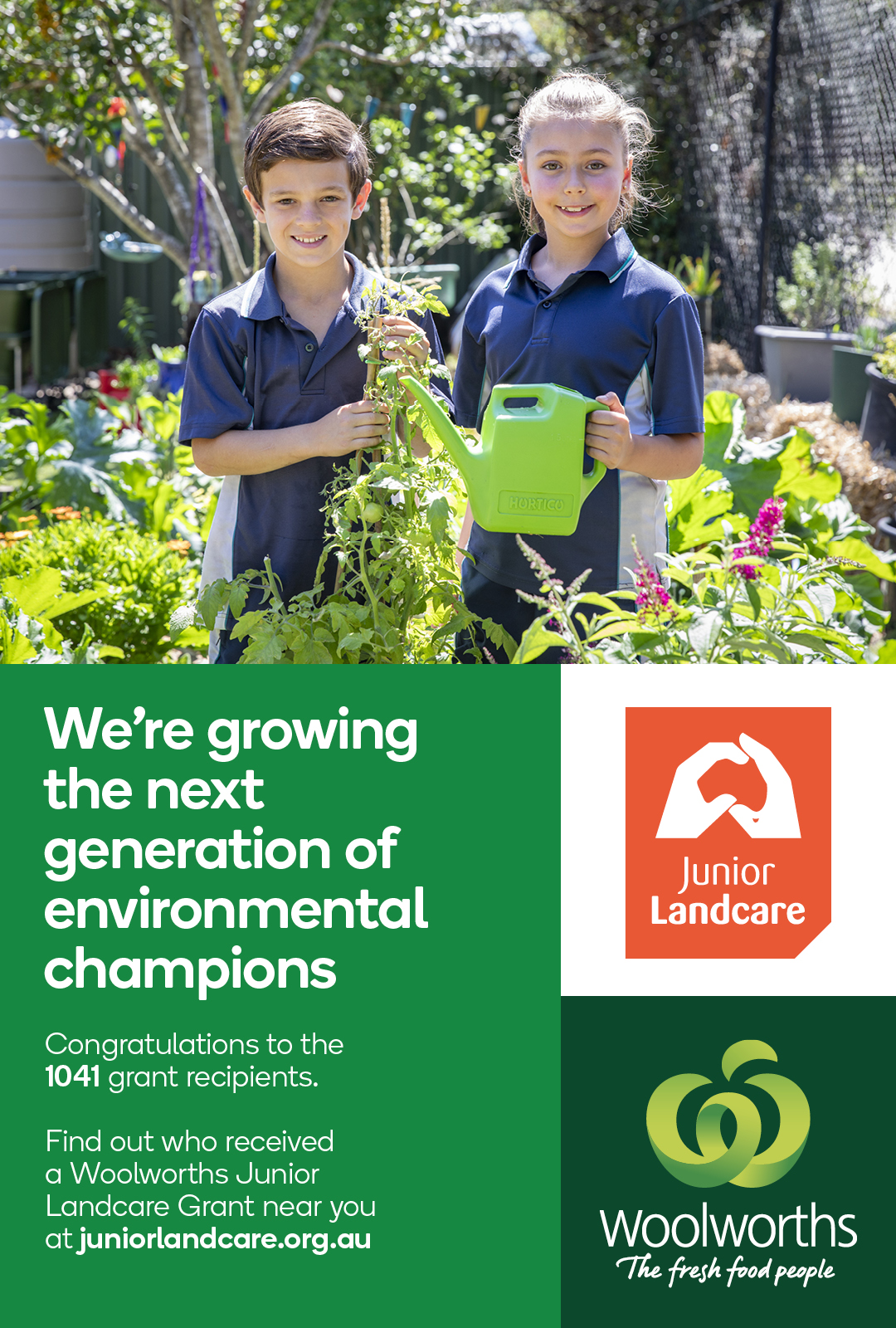CASE STUDY

Age Groups: 7-13
Grant Name:
School: Oonooba State School
Grant Sponsor: Woolworths
Project Overview
Oonoonba State School, located in a suburb of Townsville, had joined the 'War on Waste'. The school was focussing on educating students about sustainable practices so that they can transfer their knowledge and skills into the wider community for a cleaner, greener future.
They wanted to implement a composting project on school grounds with the aim of reducing the amount of food waste the school was sending to landfill. As the Year 3 Queensland Health Curriculum dedicates a unit to the teaching of sustainable practices towards a healthy future, teachers felt this would be an idea project for Year 3 students.
The school was successful with its application for a Woolworths Junior Landcare Grant, receiving their $1000 funding in late 2018. The school was severely damaged in Term 1, 2019 by a monsoon that swept through the Townsville area, delaying implementation of their Waste Warriors project.
By Term 3, 2019, Year 3 students were able to build the compost system, using recycled hardwood and iron for constructing the bays. Their involvement included the investigation, implementation and management of the sustainable practice of composting.
Environmental Outcomes
This composting project is now reducing the amount of food waste the school sends to landfill. There are clearly labelled food scrap buckets in the school’s six eating areas as well as in the tuckshop. Students are encouraged to place their food scraps from their snacks and lunches into the buckets.
From the composting of the food scraps as well as brown leaves, old garden clippings and old shredded newspapers, the school is working towards producing its own nutrient rich soil and mulch, free of chemicals, for use on existing school gardens and vegetable gardens.
Educational Outcomes
The students explored the concept of ‘sustainable practice’ and the ways that they can contribute to the sustainability of the environment in their school. The project provided students with a hands-on learning experience through which they were able to investigate the sustainable practice of composting and learn how to set up and manage a compost system that supports the whole school. They explored how the sustainable practice demonstrate respect for the environment and responsibility for their own waste.
This composting project is an ongoing vehicle for learning about sustainability as part of the Year 3 Health curriculum. The plan is that each year, the Year 3 cohort will learn about composting as a sustainable practice and these students will be responsible for the maintenance of the compost system.
All 75 Year 3 children are rostered on compost crews. Each day, a crew is responsible for collecting the scrap buckets from the eating areas and tuckshop and then emptying the buckets into the compost bays. Many of the students report that this is their favourite part of the project.
Conclusion
“It is more important than ever to teach children how to be environmentally conscious individuals. Composting with students is a simple way to start getting them involved in being sustainable and taking responsibility for their waste,” said Sheryl Firth, the school’s health teacher.
“It’s a simple formula and has so many environmental, health and educational benefits. For the children, it just seems like great fun!”
 Teachers & Educators
Teachers & Educators Youth or Community Groups
Youth or Community Groups